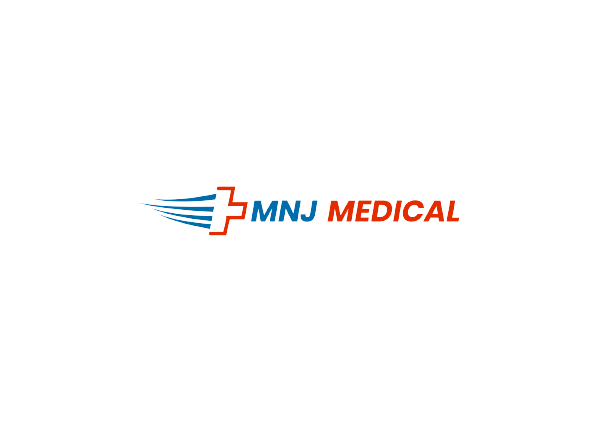Handicap transportation plays a crucial role in fostering independence for individuals with disabilities. By providing reliable and accessible transportation options, people with disabilities can confidently navigate their communities and lead fulfilling lives. This blog explores the various ways handicap transportation contributes to independence and why it’s essential in today’s society.
Understanding Handicap Transportation
Handicap transportation refers to the various modes of transport specially designed or adapted to meet the needs of individuals with disabilities. These services ensure that people with mobility challenges or other disabilities can travel safely and comfortably. In cities like Sarasota, Florida, companies like Stellar Transport offer dedicated services that go beyond just mobility. These services empower individuals with disabilities to lead independent lives by providing necessary access to healthcare, education, and employment opportunities. By adapting vehicles and services to meet the diverse needs of disabled individuals, handicap transportation paves the way for greater autonomy and freedom.
The need for such specialized transport solutions becomes increasingly apparent when considering the specific challenges faced by individuals with disabilities. Standard public transport systems often lack the infrastructure and support required to cater adequately to those with special needs. For instance, non-emergency medical transportation (NEMT) services in Sarasota serve as a vital lifeline, enabling individuals to attend medical appointments and maintain their health without unnecessary stress or delay. These services offer the reassurance that individuals with disabilities can safely and efficiently navigate their daily tasks, fostering a sense of security and self-reliance.
Benefits of Handicap Transportation
Accessible transportation provides a sense of freedom and autonomy for individuals with disabilities. It enables them to participate in community activities, access healthcare, pursue education, and maintain employment. These opportunities significantly enhance their independence and well-being. In Sarasota, handicap transportation services not only bridge the gap in accessing vital services but also weave individuals seamlessly into the fabric of the community. This access to reliable transport helps them break free from the confines that limited their interaction with the world at large, ultimately leading to a more inclusive community.
Moreover, these transportation solutions contribute economically and socially by enabling individuals to enter the workforce. With dependable transport, people with disabilities can secure employment opportunities, contributing their skills and talents to society. This integration boosts their self-esteem and economic independence, making them valued members of the workforce. By providing access to job opportunities, individuals are empowered to lead fulfilling lives, supported by the increased diversity and inclusivity within the workplace.
In promoting social inclusion, handicap transportation services allow individuals to partake in communal and recreational events, reducing feelings of isolation. This not only enhances the quality of life for those with disabilities but also enriches the community through the diversity of experiences and perspectives they bring. By facilitating mobility, these services ensure that individuals can maintain meaningful social connections, promoting well-being and personal growth.
Challenges in Accessing Handicap Transportation
Despite its importance, many barriers can hinder access to handicap transportation, such as limited availability of services, high costs, and lack of awareness. It’s crucial to address these challenges to ensure that all individuals have the accessibility they deserve. Although companies like MNJ Medical are striving to provide comprehensive services, there are still hurdles to overcome, including infrastructural limitations and funding constraints. These barriers can significantly affect the ability of individuals to access the necessary aid, making it imperative for policymakers to prioritize the development and expansion of these essential services.
Addressing these challenges involves a multi-faceted approach, including raising awareness about the significance of handicap transportation, lobbying for adequate funding, and encouraging innovation in transport solutions. By actively involving communities and stakeholders in the conversation, we can identify and implement strategies to enhance the reach and quality of these services. This collective effort ensures that transportation is genuinely inclusive, accommodating the needs of all individuals, regardless of their disabilities.
The Future of Handicap Transportation
With advancements in technology and increased awareness, the future of handicap transportation looks promising. Innovations such as autonomous vehicles and improved accessibility features offer exciting possibilities for further enhancing independence for people with disabilities. These technological strides can transform the landscape of accessible transport, making it more efficient, responsive, and personalized. As society continues to embrace these advancements, the potential to revolutionize how individuals with disabilities interact with their communities grows exponentially.
Moreover, systems that prioritize the needs of diverse populations are essential in fostering resilience and inclusivity. By integrating cutting-edge technologies with empathetic service delivery, companies like MNJ Medical are on the forefront of creating transportation solutions that cater to every individual’s needs. As we look towards the future, continued innovation and collaboration among industry leaders, government entities, and communities will be key in ensuring that handicap transportation remains a cornerstone of independence for all.
Empowering Lives through Accessible Transport
Handicap transportation is more than just a means of moving from one place to another; it’s a key factor in promoting independence and improving quality of life for individuals with disabilities. By ensuring that transportation is accessible, affordable, and supportive, we empower those with disabilities to pursue their personal and professional ambitions, contributing to a more inclusive society.

